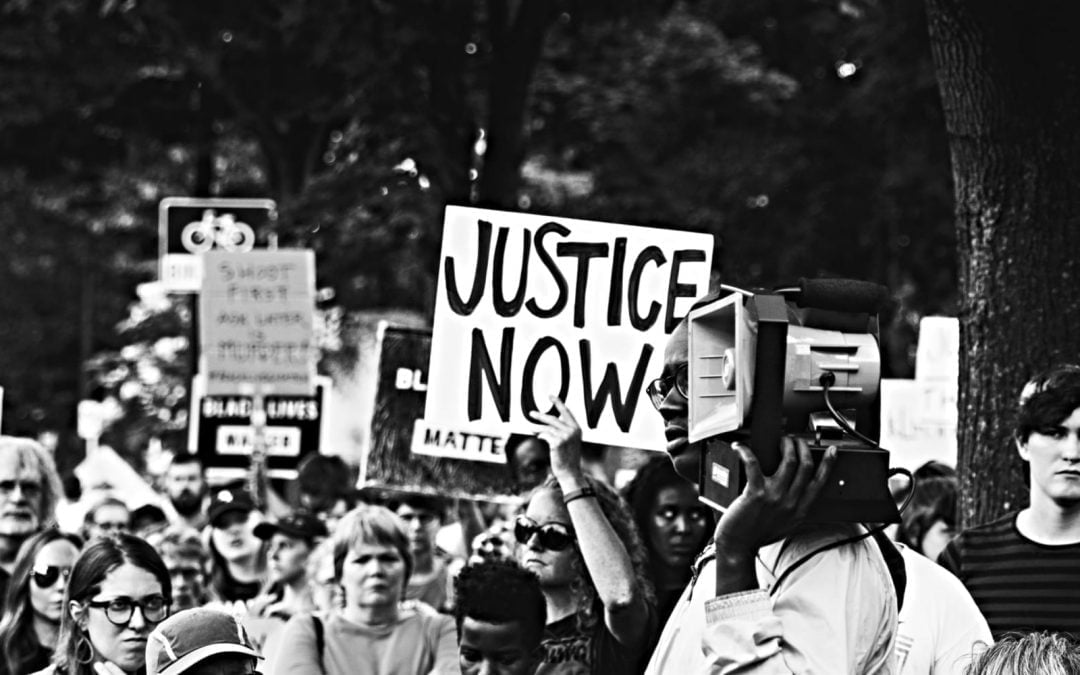When William Wilberforce mounted a decades-long campaign to ban slavery in the British Empire, his deep evangelical piety sustained him.
When Ida B. Wells risked her life to expose the horrors of lynching, she did so out of a faith in a crucified God.
Oscar Romero was martyred because he demanded sweeping changes to the politics and economics of El Salvador that had so long crushed the image of God in the poor.
Of course, most Americans need no introduction to Martin Luther King Jr., who was always a preacher first and activist second. I could go on and on.
Yet today, there are conservative white evangelicals issuing statements decrying “social justice.”
Many people consider “social justice warrior,” or “SJW,” an easy pejorative.
It all begs a scary question: Did all those devout Christian leaders and martyrs get the gospel completely wrong?
We can start by asking what the Bible means by justice. The Hebrew words for justice are “mishpat” and “tsedeqah.”
Unfortunately, some translations render these words as “righteousness” and “judgment.” So, it is easy for some Christians to think justice is simply a matter of individual obedience.
Yet, these are rich and layered words. “Mishpat” really means judgment according to one’s rights – especially the rights of the poor and oppressed in a society.
“Tsedeqah” is a justice that brings communities back together and rescues people from suffering.
Jesus blended the two concepts together. Jesus’ justice is one that delivers the people that society ignores and demeans – not only in the age to come, but from poverty and misery in this life – and where all God’s creation lives in restored relationship.
When that justice meets the likes of peace and joy, the hair on our skin rises in anticipation of the always-coming Kingdom of God.
The Kingdom of God is a total transformation not only of how we relate to God, but also of how we relate to each other in the messiness and pain of this life.
Social justice and the Kingdom of God are inextricable. Rome would not have bothered crucifying Jesus and killing his apostles if all Jesus cared about was the conversion of individual sinners.
Yet, if something still feels missing for you, I suspect it is because different notions of justice aren’t really what’s at stake. What we’re really talking about is sin.
Is sin solely a matter of one person rejecting and disobeying God? Can my sin plus your sin prove more toxic than the sum of its parts? Can we bake it into the rules of society so it outlives us on autopilot? Can it infect others? Can it last for generations?
Social justice is not a secular idea, but a shortcut to describe a Christian tradition with a deadlier, more pervasive notion of sin itself.
Most of us are familiar with the idea of outsourcing jobs. The Bible also talks about how we outsource our sin.
Israel and Judah thought worship would be enough to escape God’s judgment, even if widows and orphans went hungry and immigrants slept in the cold.
But God sent prophets to warn, “All we like sheep have gone astray; we have all turned to our own way, and the Lord has laid on him, the iniquity of us all” (Isaiah 53:6).
The people of Jesus’ day carefully counted the laws they upheld. But then a poor, dark-skinned prophet from a nothing town accused them of having “neglected the weightier matters of the law: justice and mercy and faith” (Matthew 23:23) and changed the whole world.
Today, we let businesses or rulers or the market or tradition do (some of) our sinning for us and think ourselves clean.
If we take the Bible seriously, we start asking what stories we missed. We see through the eyes of the person who was redlined by the same bank that helped grow our savings account.
We discover that the economic goliath that is America took its baby steps profiting from the plight of slaves, from the exclusion of women, from exploitation of the poor.
It turns out that social justice might just mean “God’s dream for our world,” and “recognizing our privilege” might just be a newfangled way of saying “convicted of our sin.”
It turns out that Wilberforce, Wells, Romero and King were onto something after all.
Editor’s note: This is the first in a series of articles for the World Day of Social Justice (Feb. 20).
Colin Holtz is a Baptist minister and writer at the intersection of church and world. He is the co-author, with David Gushee, of “Moral Leadership for a Divided Age: Fourteen People Who Dared to Change Our World.”


